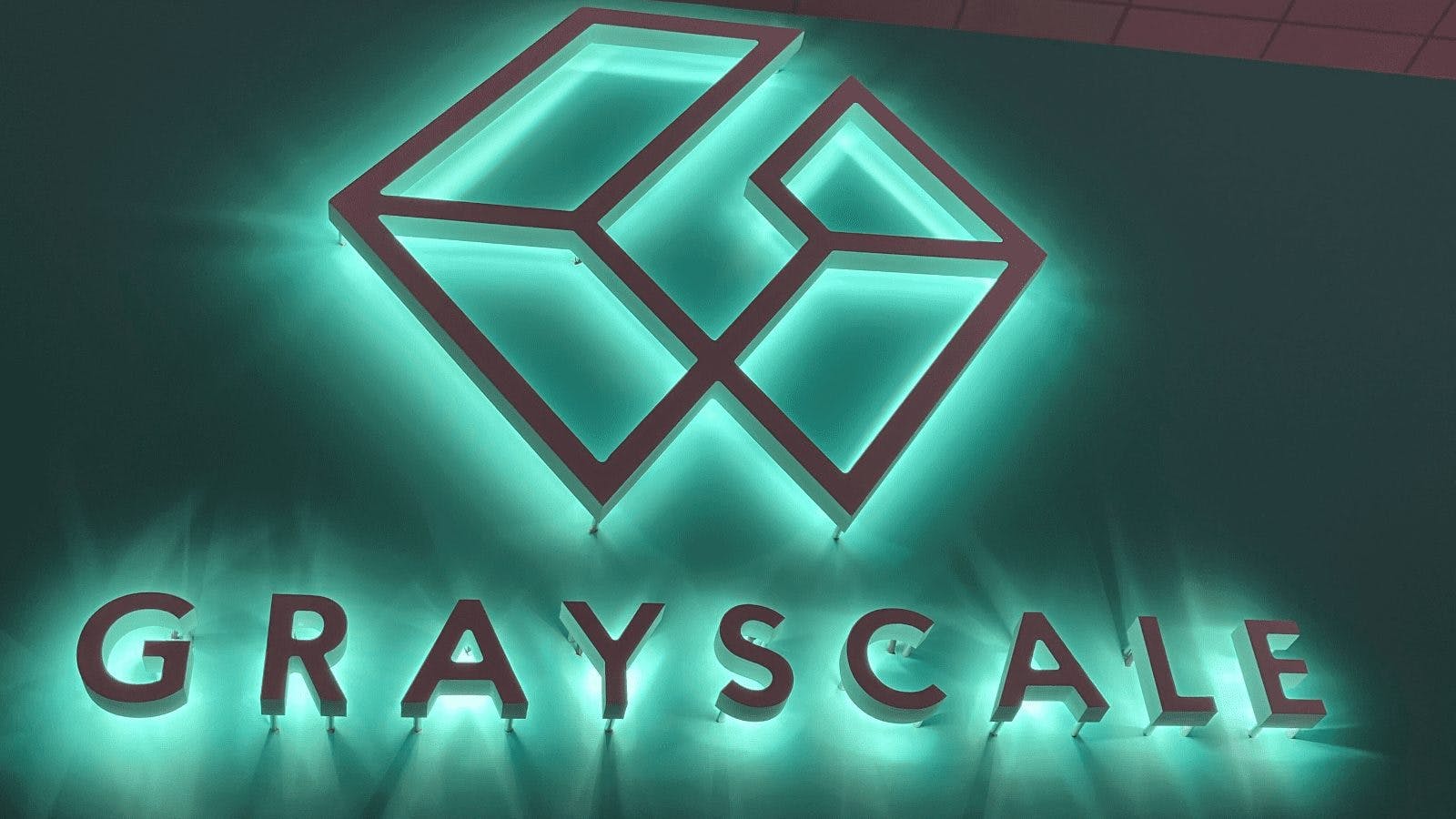Grayscale CEO: Spot Bitcoin ETF Approval Is ‘The Next Natural Step’ for SEC
CEO Michael Sonnenshein again said the firm would consider suing the agency if it denies its proposed conversion of GBTC to an ETF

Source: Ben Strack for Blockworks
- Sonnenshein told Blockworks it is “tough to say what the SEC is waiting for”
- The firm, meanwhile, plans to launch products targeting other corners of crypto
Crypto asset manager Grayscale Investments is holding the line on considering suing the Securities and Exchange Commission if the agency turns down its long-running proposal to convert its bitcoin trust to an ETF.
CEO Michael Sonnenshein — doubling down on previous comments — said Tuesday at the Exchange ETF conference in Miami that “all options would be on the table” in such a scenario.
 Grayscale CEO Michael Sonnenshein speaking at the Exchange ETF conference in Miami | Source: Ben Strack for Blockworks
Grayscale CEO Michael Sonnenshein speaking at the Exchange ETF conference in Miami | Source: Ben Strack for Blockworks
“When they’re looking at two issues that are alike, they as a regulator need to look at the two issues through a like lens,” Sonnenshein said.
The firm filed to convert its Grayscale Bitcoin Trust (GBTC) to an ETF last year. The investment vehicle, which launched in 2013, has $25.6 billion in assets.
More than 800,000 US accounts invest in GBTC, Sonnenshein said, noting it’s held by individuals, retirement accounts, mutual funds and ETFs.
“When you think about the opportunity that [the SEC] has, it’s really to be the voice of further protecting investors and bringing an already existing product into a more stringent regulatory framework that will give investors more protection,” Sonnenshein said.
The SEC’s ruling on the conversion is expected in July. GBTC has consistently traded at a discount in recent months, and more than 3,000 letters have been submitted to the SEC advocating for the change.
Though a handful of fund issuers have applied for bitcoin spot ETFs in recent years, the SEC has yet to approve any.
Sonnenshein tweeted last week that the SEC’s arguments against a spot bitcoin ETF were “significantly weakened” after it approved a bitcoin futures ETF by Teucrium that was filed under the Securities Act of 1933 (‘33 Act) — the same law under which spot bitcoin ETFs have been filed.
Though the SEC had already permitted several ETFs that invest in bitcoin futures — from issuers ProShares, Valkyrie and VanEck — those were filed under the Investment Company Act of 1940 (‘40 Act).
The CEO told Blockworks bitcoin futures ETFs were a “huge milestone” for the industry and that “the next natural step” would be to approve a spot bitcoin ETF under the ’33 Act.
“It’d be tough to say what the SEC is waiting for singularly, because as recently as the Teucrium approval, they actually spell out that the futures contracts themselves are tied to the underlying spot markets themselves,” Sonnenshein said in an interview Tuesday. “So, if their hang-up has been the underlying market, well now they’ve certainly changed their tune.”
Though the conversion of GBTC to an ETF is the number one priority for the firm, Sonnenshein said, the firm expects to launch more products targeting different subsets of the crypto space. He did not specify particular areas Grayscale may focus on.
The asset manager in February launched its first ETF, which invests in companies working to build out the digital economy. Plus, it launched a fund last month allowing investors to bet on Ethereum’s largest competitors in the smart contract space.
Get the news in your inbox. Explore Blockworks newsletters:
- The Breakdown: Decoding crypto and the markets. Daily.
- 0xResearch: Alpha in your inbox. Think like an analyst.






